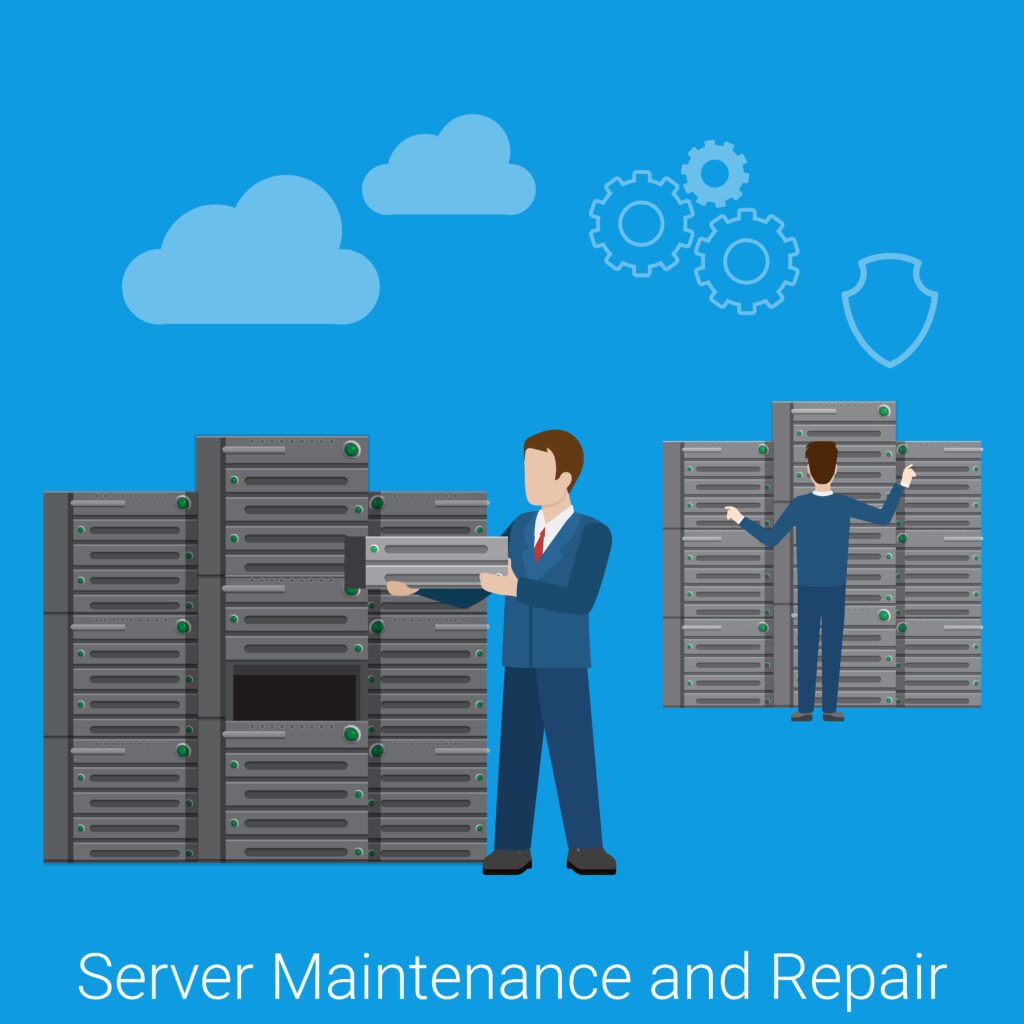Effective Linux server management is a cornerstone for ensuring business-critical applications run without interruptions. Businesses heavily rely on their servers to operate round the clock, and any server downtime can lead to huge financial losses, reputational damage, and operational disruptions
In this comprehensive overview, we’ll look at why Linux servers dominate the industry, best server administration practices, the need for frequent patching and upgrades, and how DVSITServices ensures that businesses’ servers run smoothly.
Why do Linux servers dominate the industry?
Linux servers have emerged as the gold standard for hosting web applications, managing databases, and running important corporate services. Several variables influence the popularity of Linux servers in the business world.

Open Source Nature
One of the most important reasons firms choose Linux servers is that they are open-source. This means that organisations do not have to purchase expensive licenses, making Linux servers extremely cost-effective.
A global developer community continuously enhances Linux, ensuring businesses operate on the most secure and optimal platforms with reliable support and regular upgrades.
Stability and Performance
Linux servers are widely recognised for their excellent stability and exceptional performance. Unlike other operating systems, Linux rarely crashes or slows down, making it the best option for hosting vital programs and websites.
The effective resource management of Linux ensures that server loads are balanced, lowering the likelihood of downtime and assuring seamless operation.
Enhanced Security Features
Security is a top priority for every business, and Linux includes built-in security protections that make it highly resistant to viruses and intrusions. Businesses can be confident that their data and systems are safe thanks to advanced user authorisation settings, firewall setups, and security updates.
Furthermore, security patch administration under Linux is simple, ensuring that enterprises remain compliant and protected from vulnerabilities.
Scalability and Adaptability are core capabilities.
Linux servers are extremely scalable and flexible, enabling companies to expand their server infrastructure as needed. No matter if you run a small-scale business or large corporation, these servers will meet your expanding demands with ease.
Additionally, Linux allows companies to tailor their server environment specifically to their operational requirements.
Key Practices for Efficient Server Management
An effective Linux server management involves employing best practices that ensure top performance, security and reliability.

Regular Monitoring and Maintenance (RM&M)
Maintaining the health of your server is vital in order to avoid unexpected performance or downtime issues, and regular maintenance can ensure that any potential problems are identified and fixed before becoming larger issues.
Monitoring regularly provides several advantages: Enhance server performance,Early identification and resolution of potential issues, Reduced time to shut down
Backup and Disaster Recovery
Data is at the core of every business and losing it due to server malfunction could be devastating. Regular backups and disaster recovery strategies ensure that your information can be securely recovered should something go amis with a server.
An effective disaster recovery plan includes essential elements, including automatic daily backups, utilising off-site data storage, and a fast process of restoration.
User Access Management.
Restricting server access to only authorized personnel reduces both external and internal threats. Implementing Role-Based Access Control (RBAC) ensures that only those relevant have access to certain areas on the server.
Reduced Risk of Data Breaches and Unauthorized Changes on Servers,Effective resource optimization is essential to maintaining server performance. Overloaded servers can easily become overwhelmed, leading to various tasks becoming delayed or even causing them to stop altogether.
Optimizing resource use requires taking several measures, such as:
Remove applications no longer necessary,Optimizing server configurations
Documenting and Reporting
Maintaining an accurate record of server changes, configurations, and updates is key for diagnosing problems while adhering to compliance measures and remaining accountable. Regular reporting enables companies to gain insight into the performance, resource utilization and security state of their servers
Importance of Regular Patching and Updates
Maintaining servers up-to-date is one of the primary responsibilities for managing them, and not doing so correctly could expose your server to security risks and performance issues.

Avoiding Security Breaches
Hackers exploit vulnerabilities that remain unpatched. Regular updates to security patches address these weaknesses, preventing unauthorized data access or breaches and security breaches.
Enhancing Performance
Software updates often address bugs and performance enhancements that will ensure smooth and efficient server operations. Staying current will help to maintain smooth performance for optimal server operation.
Compliance and Regulations
Many industries abide by stringent regulatory standards, so regular patch management ensures companies remain compliant and avoid legal penalties.
Regular Backup and Disaster Recovery Solutions
Data loss can be catastrophic for any company. Whether caused by server failure, cyberattacks, or accidentally deleted files, its effects could be irreparable and cause irreparable damage.
Investing in Reliable Server Management Services
Effective Linux server administration has become an essential requirement of businesses that aim for smooth operation, high uptime and strong data security. Unmanaged servers may lead to costly downtimes, data breaches and decreased productivity which in turn reduce the overall effectiveness of business operations.
DVSITServices is an efficient server management provider for companies seeking to streamline their server management processes. Their experienced experts ensure that all servers remain monitored properly to keep up-to-date and patched as required
Companies can focus on their core business without worrying about server performance and potential downtime issues. An investment in reliable server administration services is an effective strategy towards growing business while improving efficiency of operations.
Managing Linux servers is a highly critical task that requires expertise, vigilance, and technical excellence. With DVSITServices, businesses can maximise uptime, protect their data, and optimise server performance without worrying about technical glitches.
FAQs (Frequently Asked Questions)
What are the reasons that Linux is often chosen as the server operating system?
Linux has long been considered the premier server operating system due to its open-source nature, stability and robust security features, offering businesses cost-effective solutions with outstanding performance and superior protection
How often should Linux servers be updated
Linux servers must be regularly updated with security patches or software upgrades from DVSITServices without disrupting business operations. Ensure all patches, software, and updates are applied without causing interruption to service delivery.
Can DVSITServices manage large server infrastructures?
DVSITServices excels at managing massive-scale server infrastructures for enterprise and cloud platforms, data centers and multi-site enterprises. Our customized server management solutions can adapt with the development of your business to provide optimal server management results.
What are the key advantages of maintaining my server regularly?
Regular server maintenance ensures security can be enhanced by eliminating vulnerabilities. Optimise performance by optimising resource utilisation, active monitoring to minimise downtime, and maintaining regular backups to secure data.
How can I begin using DVSITServices to manage my server?
Starting off with DVSITServices is straightforward! Check out our website at dvsitservices.com, reach out, and contact us for support. Our experts will assess your server requirements before developing tailor-made server management solutions tailored specifically for your company’s needs.
Controlling Linux servers requires experience, vigilance and perfection – however with DVSITServices business clients can reduce server management times significantly while protecting data stored and improving server performance without technical concerns getting in their way.
